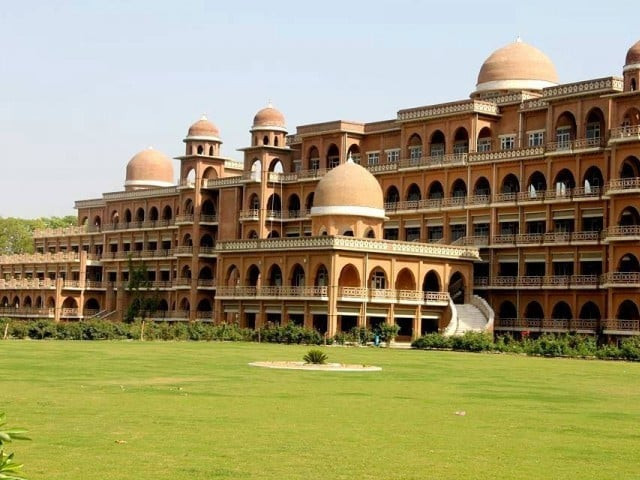Future at stake: UoP stops degrees for Afghan students
Varsity official says certificates will be granted to students with PoR cards

Varsity official says certificates will be granted to students with PoR cards.
PHOTO: EXPRESS
While speaking to The Express Tribune, Abdul Wali, who graduated along with his three other friends two years ago from Islamia Degree College Peshawar, said the officials refused to accept his degree form without a photocopy of his POR card or Afghan passport.
Wali said he was told by officials at the examination department to attach photocopy of the POR card or of the passport if he wanted the form to be accepted. He requested the examination department that he would either submit his father or uncle’s POR card. However, his form was rejected.
‘We have not been issued POR nor have the passport do we,” said Khan, another student. He added that he had studied in the university’s affiliated college and has completed the degree. However, the university is not providing him the degree. He is not the only one to face the brunt of this problem. According to Khan, hundreds of students have reported the matter to Afghan consulate.
“I have also approached the consulate of Afghanistan in Peshawar to sort out the issue,” he added.
The consulate agreed to issue them letters to provide them the degrees. However, he said the university administration said such letters will not be accepted and no degree will be issued to Afghan students without attaching either a copy of their POR card or passport with the degree form.
He said at the time of admission the college asked students to submit POR cards but he did not attached it with the form and was still granted admission. “I was not aware the university will demand POR cards or passports to issue degree to us.”
He urged the authorities to take action as the future of hundreds of Afghan students is at stake.
The other view
When contacted, University of Peshawar Admissions Director Dr Hizbullah told The Express Tribune there were two seats reserved for Afghan nationals which Afghan Commissionerate recommended to the university for admission of students with PoR cards issued by the Pakistan government.
Furthermore, he said the remaining Afghan nationals applied to the university on foreign seats and the university offers them admission if they adhere to the admission criteria and have a valid passport with visa stamped on it.
“We do not admit any Afghans on foreign seats [who have] no passports,” Hizbullah said. “If any Afghan national has completed degree from any other affiliated college having no POR card or passport, they might have applied on fake Pakistani CNIC.”
He added, “UoP will issue degrees to those who have valid POR card or passport attached with the degree application form.” He said submitting a degree form without POR card or a copy of a student’s passport meant he has been granted illegal admission at any affiliated college.
Backdrop
According to United Nations High Commission for Refugees, Pakistan hosts the largest number of refugees – approximately 1.5 million Afghans and 7,000 asylum seekers, also mostly Afghans.
The National Action Plan (NAP), launched after the Army Public School massacre to combat militancy, included repatriation of Afghan refugees.
The government is also conducting crackdowns against those residing in parts of the province without registration papers. Afghans who don’t possess legal documents have been asked to leave the country by December. So far, according to UNCHR, over 65,000 Afghan refugees have permanently repatriated in August.
Published in The Express Tribune, September 9th, 2016.













COMMENTS
Comments are moderated and generally will be posted if they are on-topic and not abusive.
For more information, please see our Comments FAQ